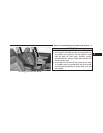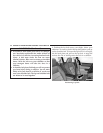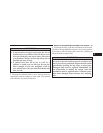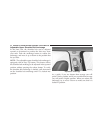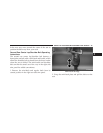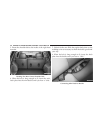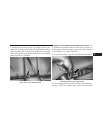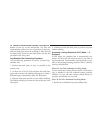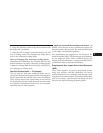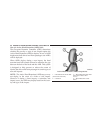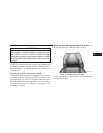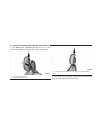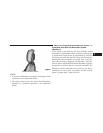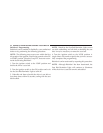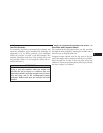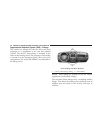
2. Grasp the shoulder portion and pull downward until
the entire belt is extracted.
3. Allow the belt to retract. As the belt retracts, you will
hear a clicking sound. This indicates the safety belt is
now in the Automatic Locking Mode.
How to Disengage The Automatic Locking Mode
Disconnect the combination lap/shoulder belt from the
buckle and allow it to retract completely to disengage the
Automatic Locking Mode and activate the vehicle sensi-
tive (emergency) locking mode.
Seat Belt Pretensioners — If Equipped
The seat belts for both front seating positions may be
equipped with pretensioning devices that are designed to
remove slack from the seat belt in the event of a collision.
These devices improve the performance of the seat belt
by assuring that the belt is tight about the occupant early
in a collision. Pretensioners work for all size occupants,
including those in child restraints.
NOTE: These devices are not a substitute for proper seat
belt placement by the occupant. The seat belt still must be
worn snugly and positioned properly.
The pretensioners are triggered by the Occupant Re-
straint Controller (ORC). Like the airbags, the pretension-
ers are single use items. After a collision deploys the
airbags and/or pretensioners, a deployed airbag and/or
pretensioner must be replaced immediately.
Supplemental Rear Impact Active Head Restraints
(AHR)
These head restraints are passive, deployable compo-
nents, and vehicles with this equipment can not be
readily identified by any markings, only through visual
inspection of the head restraint. The head restraint will be
split in two halves, with the front half being soft foam
and trim, the back half being decorative plastic.
2
THINGS TO KNOW BEFORE STARTING YOUR VEHICLE 49



